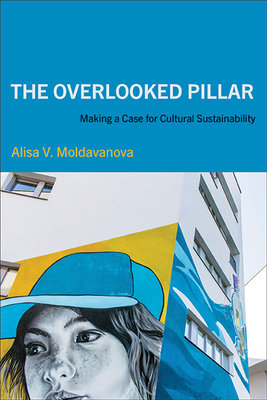The Overlooked Pillar: Making a Case for Cultural Sustainability

The Overlooked Pillar: Making a Case for Cultural Sustainability
Elevates in systematic ways the importance of organizational thinking about sustainability and emphasizes the importance of cultural organizations in facilitating societal sustainability goals. Offering an original perspective on the sustainable-development discourse by emphasizing the importance of culture and cultural institutions in facilitating societal sustainability goals, The Overlooked Pillar conceptualizes sustainability as an institutional logic that develops in organizations and is enacted by managers of such organizations who make decisions and engage in sustainable thinking on a daily basis, leading them to reconcile current organizational realities and the need to adapt to those realities with considerations of the needs of future generations. Drawing on more than five years of research conducted on a variety of organizations within the domain of the arts and humanities, Alisa V. Moldavanova provides a framework for organizational sustainability based on the dynamic interplay of two narratives-institutional resilience and institutional distinctiveness-and identifies mechanisms and strategies adopted by managers of cultural organizations that maintain and enhance intergenerational sustainability.<
PRP: 343.09 Lei
Acesta este Pretul Recomandat de Producator. Pretul de vanzare al produsului este afisat mai jos.
308.78Lei
308.78Lei
343.09 LeiIndisponibil
Descrierea produsului
Elevates in systematic ways the importance of organizational thinking about sustainability and emphasizes the importance of cultural organizations in facilitating societal sustainability goals. Offering an original perspective on the sustainable-development discourse by emphasizing the importance of culture and cultural institutions in facilitating societal sustainability goals, The Overlooked Pillar conceptualizes sustainability as an institutional logic that develops in organizations and is enacted by managers of such organizations who make decisions and engage in sustainable thinking on a daily basis, leading them to reconcile current organizational realities and the need to adapt to those realities with considerations of the needs of future generations. Drawing on more than five years of research conducted on a variety of organizations within the domain of the arts and humanities, Alisa V. Moldavanova provides a framework for organizational sustainability based on the dynamic interplay of two narratives-institutional resilience and institutional distinctiveness-and identifies mechanisms and strategies adopted by managers of cultural organizations that maintain and enhance intergenerational sustainability.<
Detaliile produsului









